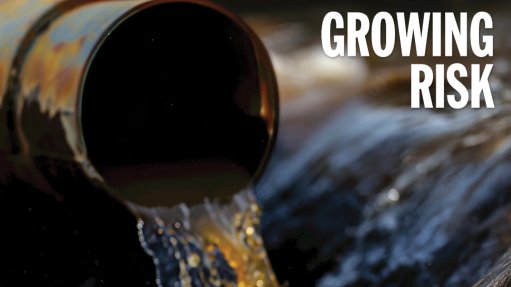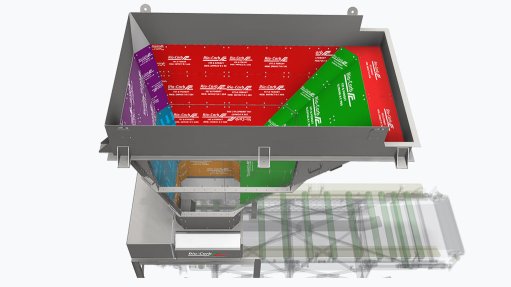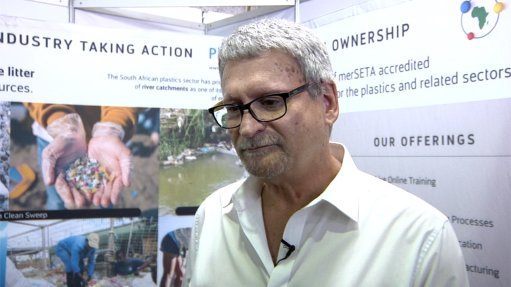New EU food regulations could see many South African citrus consignments destroyed
New European Union (EU) regulations, which apply from July 14, require that imports of citrus fruit must undergo specified mandatory cold treatment processes and precooling steps for specific periods, up to 25 days of cold treatment, before importation, says Citrus Growers' Association of South Africa (CGA) market access and EU matters special envoy Deon Joubert.
If enforced this month, these new regulations could result in millions of cartons of citrus currently headed to the EU being destroyed, he adds.
In June, the EU Standing Committee on Plant, Animal, Food and Feed published drastic new regulations requiring the cold treatment of oranges heading to the region as a means to address False Coddling Moth (FCM) interceptions from Southern African orange exports.
These regulations make extensive changes to the current applicable phytosanitary requirements for citrus coming from South Africa, says Joubert.
The nature of the cold treatment prescribed in the new regulations is “contrary to scientific evidence, making it an arbitrary, unjustified and unnecessarily trade-restrictive measure” and accordingly contravenes international requirements for such phytosanitary trade regulations, he adds.
Further, a significant portion of South Africa’s commercial orange production will also not be able to withstand the new prescribed cold treatment.
Organic and chemical-free oranges are particularly prone to chilling injury and will be most severely impacted, even though no FCM interceptions have been reported in the EU on these environment-friendly and sustainable orange types, Joubert points out.
"South Africa is currently engaging with its counterparts in the EU to reconsider these regulations on the basis that they carry no technical weight and appear to be nothing more than a politically motivated move by Spanish producers to freeze out Southern Africa citrus from the European market," he avers.
However, of immediate concern is the fact that there are currently numerous shipments of citrus fruit en route to the EU with phytosanitary certificates issued before July 14, based on South Africa's existing systems approach. These shipments will reach the EU after July 14, by which time the EU's new phytosanitary requirements will apply.
"As a result, an estimated 3.2-million cartons of citrus valued at R605-million currently en route to the region could potentially be destroyed by authorities," he says.
This will not only result in large gaps in the supply chain and higher prices for European consumers, at a time when the region faces the risk of food insecurity owing to the ongoing Ukraine-Russian conflict, but will also severely threaten the sustainability and profitability of the South African citrus industry.
"It will put 140 000 jobs that the local industry sustains, mostly in rural areas, at risk. The massively unjustified potential destruction of millions of cartons of fruit also comes at a time when the EU has prioritised minimising food waste in supply chains across the region," Joubert highlights.
"The fact that authorities are trying to enforce these new regulations a mere 23 days after publication, making it impossible for South African growers to comply, highlights how unjustified and discriminatory this legislation is, with European consumers and local rural workers ultimately paying the price," he says.
The CGA, in conjunction with the South African government, will continue to lobby against this restrictive legislation, which effectively poses the equivalent of a trade block for Southern African States.
“It would be unconscionable if political agendas result in millions of cartons of top-quality citrus being destroyed,” Joubert says.
"These new requirements, arguably misinformed, differ significantly from South Africa's existing rigorous FCM Risk Management System, which has been highly effective in protecting European production from the threat of pest or disease, including FCM, over several years and is supported by the results of scientific studies published in international peer reviewed scientific journals," he highlights.
Significantly, local citrus growers currently export 800 000 t of high-quality citrus fruit to the EU every year, yet FCM interceptions have been consistently low over the past three years, with 19 in 2019, 14 in 2020 and 15 in 2021.
“This is in stark contrast to FCM interceptions from other importing countries, which have been much higher, with 53, 129 and 58 interceptions over the same period. However, no measures have been proposed against these countries,” Joubert says.
Despite objections from a number of countries, including European markets that currently import South African oranges, these new regulations were published in the Official Journal of the EU on June 21, stating that these shall apply from July 14.
Comments
Press Office
Announcements
What's On
Subscribe to improve your user experience...
Option 1 (equivalent of R125 a month):
Receive a weekly copy of Creamer Media's Engineering News & Mining Weekly magazine
(print copy for those in South Africa and e-magazine for those outside of South Africa)
Receive daily email newsletters
Access to full search results
Access archive of magazine back copies
Access to Projects in Progress
Access to ONE Research Report of your choice in PDF format
Option 2 (equivalent of R375 a month):
All benefits from Option 1
PLUS
Access to Creamer Media's Research Channel Africa for ALL Research Reports, in PDF format, on various industrial and mining sectors
including Electricity; Water; Energy Transition; Hydrogen; Roads, Rail and Ports; Coal; Gold; Platinum; Battery Metals; etc.
Already a subscriber?
Forgotten your password?
Receive weekly copy of Creamer Media's Engineering News & Mining Weekly magazine (print copy for those in South Africa and e-magazine for those outside of South Africa)
➕
Recieve daily email newsletters
➕
Access to full search results
➕
Access archive of magazine back copies
➕
Access to Projects in Progress
➕
Access to ONE Research Report of your choice in PDF format
RESEARCH CHANNEL AFRICA
R4500 (equivalent of R375 a month)
SUBSCRIBEAll benefits from Option 1
➕
Access to Creamer Media's Research Channel Africa for ALL Research Reports on various industrial and mining sectors, in PDF format, including on:
Electricity
➕
Water
➕
Energy Transition
➕
Hydrogen
➕
Roads, Rail and Ports
➕
Coal
➕
Gold
➕
Platinum
➕
Battery Metals
➕
etc.
Receive all benefits from Option 1 or Option 2 delivered to numerous people at your company
➕
Multiple User names and Passwords for simultaneous log-ins
➕
Intranet integration access to all in your organisation


















